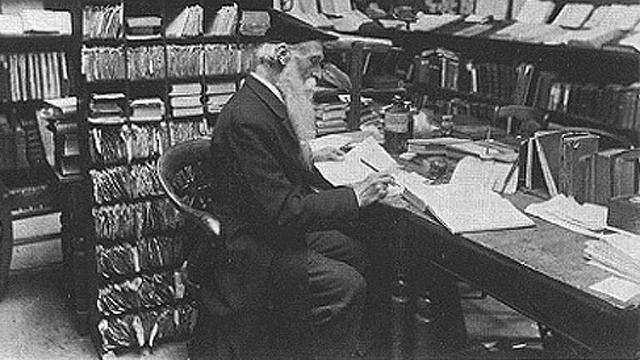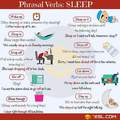William Chester Minor (1834-1920)
Címkék: szótár William Chester Minor OED Oxford English Dictionary
2014.11.12. 14:46
Tudtad, hogy az Oxford English Dictonary nagy részét egy mentális zavarokkal küszködő, gyilkosságért elítélt, harctéri sebész írta egy elmegyógyintézetben?
William Chester Minor életéről az Index hírportálon is olvashatsz magyarul: http://index.hu/tudomany/til/2014/11/04/a_leghiresebb_angol_szotar_nagy_reszet_egy_orult_irta_az_elmegyogyintezetbol/
de az alábbi angol szövegből is megismerheted történetét:
William Chester Minor (1834-1920)

Minor was born in June 1834 in Ceylon, the son of American missionaries. His mother died when he was three, and his father subsequently remarried and had a second family. Minor was a clever sensitive lad who painted, played the flute, and spoke several languages but kept having "lascivious thoughts" about the local girls so he was sent back to America when he was 14 to live with an uncle. He went on to study medicine at Yale and became a surgeon in the Union Army in 1863.
In May 1864 he was at the Battle of the Wilderness and it is thought that the exposure to the full horrors of war including the burning alive of hundreds of soldiers, horrific casualties and mutilations triggered his mental illness. As part of his duties he was forced to brand the letter D on the face of an Irish deserter, and this incident caused him a great deal of mental torment.
At the end of the American Civil War Minor saw duty in NYC but he was strongly drawn to the red light area and spent increasing amounts of time and money on prostitutes. By 1867, his behaviour had become bizarre and the Army transferred him to a remote post. By 1868 Minor showed growing signs of mental instability, and placed in the US Government Hospital for the Insane. After 18 months he was allowed to resign and receive an Army pension.
He was discharged from the hospital in 1871 and went to London as part of a vacation. There he resumed going with prostitutes and at the same time his paranoia returned with a vengeance. He became obsessed with the idea that the Irish were going to punish him for the branding he carried out during the war. He started carrying a loaded gun for his own protection.
In an early morning in February 1872 after returning home late at night he woke up believing that someone was trying to get into his room. He chased after the intruder and shot at a man in the street. George Merritt, 34, was walking down Belvedere Road at 2am when Minor fired four shots two of which entered his neck. Merritt was declared dead on arrival at the hospital.
Minor was judged not guilty on grounds of insanity, and was detained as a "certified criminal lunatic". Minor was allocated two rooms in the asylum and was allowed to have books and painting materials.
Merritt's wife Eliza was left with seven children ranging from 12 months to 18 years to bring up with another on the way. Times were very hard for her and her children but wealthy Minor helped out financially and Eliza even asked to visit Minor. This highly unusual request was granted and she started visiting him monthly and even undertook to collect books from various London bookshops for him.
These visits did not last very long as Eliza took to drink but seemed to have greatly helped Minor as it gave him a new occupation. The Oxford English Dictionary (OED) editor Dr James Murray had an eight page flyer (a letter) inserted into several new books appealing for new readers to find words and quotations for the dictionary. One of these flyers found its way to Minor, perhaps in one of the books that Eliza brought him. He began reading and collecting books and turned one of his rooms into his library. This he put to good use, as he became a principal contributor of sixteenth and seventeenth century quotations to the first edition of the OED for over thirty years. Initially the OED editor, Dr James Murray, was unaware that Minor was insane but after many years he started regular visits to Minor in Broadmoor.
By 1902 Minor's mental health had deteriorated and he cut off his penis in an act of self-mutilation, which he thought would stop his lascivious thoughts. In 1910 following strong representations from Dr Murray, the then Home Secretary, Winston Churchill, signed the necessary papers to allow Minor to return to the mental hospital in the USA.
He died of complications arising from pneumonia on the 26th March 1920 in an old people’s home in New Haven, Connecticut, having been discharged from hospital shortly and is buried at Evergreen Cemetery New Haven. The last psychiatric diagnosis on Minor was that he suffering from dementia praecox or schizophrenia.
Vocabulary:
missionary = hittérítő
subsequently = aztán, azt követően
lascivious thoughts = buja gondolatok
mutilations = csonkítás
triggered = kivált, előidéz
brand = billogozni, bélyeget beleégetni
mental torment = lelki gyötrődés
insane = elmebeteg, örült, bolond
discharged from the hospital = kiengedték a kórházból
resumed = újrakezd, visszatér
vengeance = bosszú
obsessed with = vmi megszállottja
a loaded gun = megtöltött fegyver
to chase = üldözni
intruder = behatoló
declared dead = halottnak nyílvánítva
allocate = kiutal, rendelkezésére bocsát
asylum = elmegyógyintézet
This highly unusual request was granted = ezt a felettébb meglepő kérést engedélyezték
to undertake sth = elvállalni vmit
flyer = szórólap
insert = beilleszt, betesz
to appeal = kérni vmit
principal contributor= legfőbb közreműködő, külsős munkatárs
initially= kezdetben
quotations = idézetek
to deteriorate = romlani (pl. egészségi állapot)
self-mutilation = öncsonkítás
pneumonia = tüdőgyulladás
dementia praecox = korai elmezavar, feledékenység
A bejegyzés trackback címe:
https://angora.blog.hu/api/trackback/id/tr956890531
Kommentek:
A hozzászólások a vonatkozó jogszabályok értelmében felhasználói tartalomnak minősülnek, értük a szolgáltatás technikai üzemeltetője semmilyen felelősséget nem vállal, azokat nem ellenőrzi. Kifogás esetén forduljon a blog szerkesztőjéhez. Részletek a Felhasználási feltételekben és az adatvédelmi tájékoztatóban.
Nincsenek hozzászólások.






